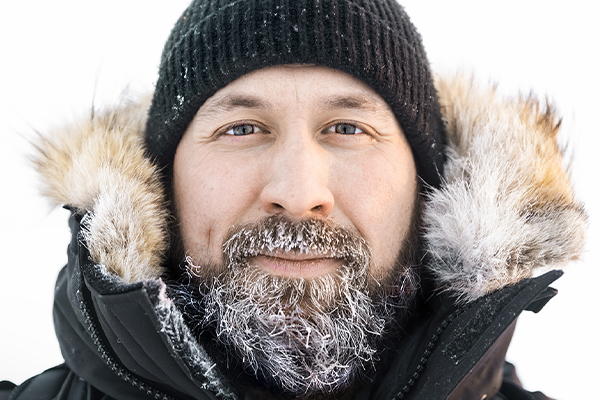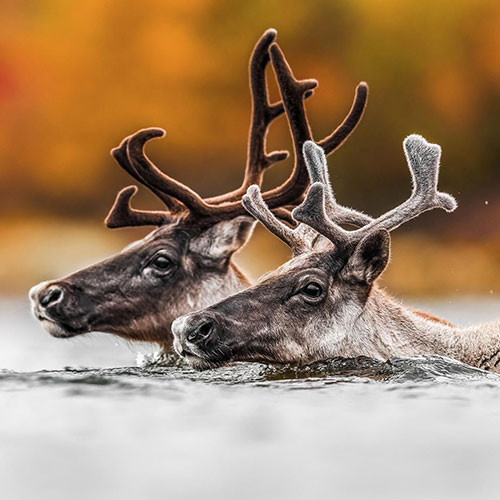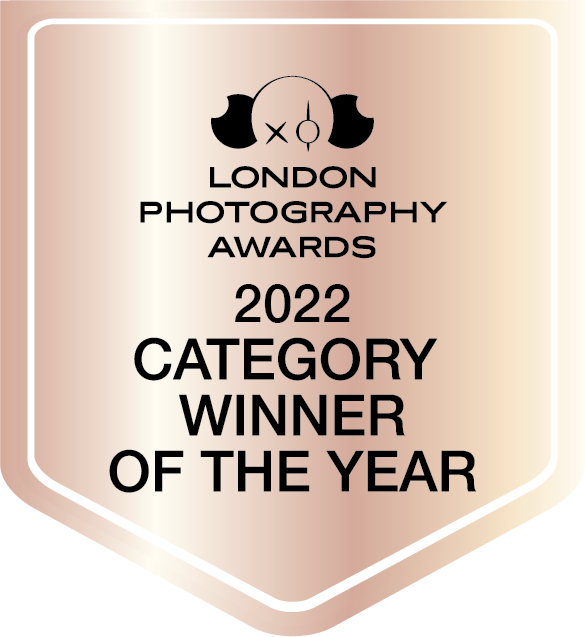
Jean-Simon Bégin
1. Can you introduce yourself and talk about how you got into photography?
I am a professional painter and wildlife photographer from Quebec City. Active in these two disciplines for more than 15 years, I participated in some 50 solo and group exhibitions and has received some 40 awards in Canada and internationally. To date, more than 1000 paintings and photography bearing my signature have been acquired from collectors. A permanent artist with two renowned Quebec gallery owners for several years, I inaugurate my own studio-gallery in 2019. The same year, I founded a publishing house, Ookpik, to publish my first book of photographic art, Contemplation. With my work, Jean-Simon B
2. Where did you study photography?
I studied graphic design at the C
3. Do you remember your first shot? What was it?
I don't remember exactly my first photograph because I was very young. I do remember one of my first pictures of a duck in flight when I had in my hand one of the first digital cameras. The picture is not spectacular but for a 12 years old boy it was an achievement.
4. What equipment do you use?
I have always used Canon cameras. I can't say it's a choice since I was very young when I started with this company. However, I have always evolved with their products and I am very satisfied. Most of the time I use a 600mm F4 lens.
5. What do you hope to achieve?
One of my biggest goals in life is to be considered one of the best wildlife photographers in the world. With this notoriety I will be able to have an important influence to protect the wildlife. I want to leave something behind me. I want to participate in the collective effort for protecting what is remaining of the wilderness
6. What compliment inspired/touched you the most?
People who can't travel in nature because of their health conditions and who write to me to say thank you for making them travel really touch me. Part of my job is to make visible what is not visible. I am the eyes of those who can't go on an adventure.
7. What inspires your unique storytelling?
I make a lot of effort to look for the animals that we see less often. That's why I think my images are very strong. I like to think that my work can contribute to unveil the less visible beauties of our nature. I also think that a strong image necessarily comes from a strong adventure.
8. What THREE (3) words describe your photography style?
I would say: Contemplation, Fragility and Hope
9. Congratulations! As the winner of the London Photography Awards, what does it mean for you and your team to receive this distinction?
I put a lot of emphasis on awards and recognition because I believe that peer recognition is an important part of a career. By winning several awards, one can build a solid reputation and have a strong
10. Can you explain a bit about the winning work you entered into the 2022 London Photography Awards, and why you chose to enter this project?
In Nunavik, After a day of rain, wind and cold photographing caribou crossing the Leaf River, Alexis and I decided to take a high position. From where we are, on the shore, a large sandy cape stands behind. Every time the caribou finish their swim, they gallop up it and then shake themselves to the top.
On a rocky ridge, with our backs pressed against the moss, we scanned the opposite shoreline with our long sights. We scanned the caribou tracks and chose one that looked very busy to position ourselves. Through the binoculars, we can see a long line of small white dots running down the mountain toward the river. We have to be patient. The light of the sunset bathes the lichen in a summer heat.
This region is really remote and there is not much people that had the chance to photographed the animals out there. That
11. How has winning an award developed your career?
I am really happy to have been recognized by the London photography award. It is an opportunity for me to showcase the wildlife of my region to the world.
12. Name 1-3 photographers who have inspired you.
For me I only have one inspiration and its Vincent Munier
13. What was the best piece of advice you were given starting out, by a mentor or your role model?
Unfortunately I don't recall any advice from any mentor in photography. In Quebec specifically I didn't grew up looking at successful wildlife photographers, there were none. So I could say that Vincent Munier was and is still my greatest inspiration.
All I could say about my success as a wildlife photographer is that I never stop believing in myself. I worked hard, very hard and I have sacrificed a lot of things to be where I am today.
14. What advice would you give someone who would like to become a photographer today?
When I talk about wildlife photography, I always explain how it is much more of a vocation than a job. In my opinion, you can't decide overnight to become a wildlife photographer. You can, however, be a person who is passionate about nature and who practices wildlife photography. Eventually, it will be possible to develop this passion to one day live from it. The difference is in the approach: it is a path that requires total devotion and a lot of time. None of this can be calculated with an hourly rate. You have to sacrifice a lot in order to be in connection and harmony with this nature as often as possible. It is a part of your social, family and financial life that you will have to give up if you really want to reach a certain level and maybe make a living with your images. I personally like the solitude and quiet of a forest. Certain character traits obviously help to live this adventure. Patience and the art of contemplation are also assets that will be essential in this path. Fortunately, it is possible to develop both!
Wildlife photography is at such a high level worldwide that to stand out you have to give it your all and always try to surpass yourself. It is impressive how many photographers are prodigious and their number is growing every day. You also have to find your own style. This is the most difficult part in my opinion. To define the type of light that you like the most and to deepen it. At the same time, you have to become an expert in the post-processing that goes with it.
The road will be full of pitfalls both on the photographic and personal level. You must not be afraid to be alone with yourself, because during the long hours of shooting, there is only you and your thoughts. You will have to learn to detach yourself from your body in order to ignore all the discomforts you will encounter in the wilderness world! The world we live in will require you to become an entrepreneur to develop not only who you are as a photographer, but also your art, your social networks, your products and your funding. In all aspects, you will need to work and implement whatever it takes to bridge the gap between your clientele and your art. Never lose sight of the fact that your art only exists to communicate a message. If your image doesn't speak for itself, it doesn't fulfill that purpose which is essential to the work of art.
For a long time I was waiting for my talent to be noticed. I waited like a child deluded by his dreams for National Geographic to call me and tell me they were offering me a contract. Until proven otherwise, life is not like that and if you don't do something to propel your success no one will come and do it for you. I am always open to any kind of job offer from National Geographic of course! But, I don't wait for things to magically happen to me, rather I set the parameters for my success.
Wildlife photography is the most expensive type of photography to do and generates the least income. It's a lot of investment to be properly equipped. But, it is not the equipment that makes the image and that is the most important thing for me. I never had the best camera, nor the best lenses, even today. But, I am proud to have bought them and I am proud of the level I have brought my images to. As long as you are honest and authentic with your art, it is easy to stand out.
I write these words not to discourage you from going down this path, on the contrary, I want you to know how much you have to give and give yourself to get there. And if you can, you will discover the most beautiful spectacles that this world can offer us to share them with as many people as possible. In the end, the more we know how to live these wild adventures, the more we will know how to love and appreciate our nature. The more we sacrifice our modern whims, the more we will consider her to remain by our side forever!
I have chosen to make no compromises in order to live what I love the most. I know with certainty that what we don't achieve today because of a certain tomorrow may never happen.
15. What is your key to success? Any parting words of wisdom?
I would say that believing in myself and persevering are the two ingredients that made me succeed in this field
16. How do you stay in that space of being receptive to new information and knowledge?
Humility is the best quality. To always become better and continue to advance, we must recognize that we do not know anything. We must never sit on our successes. This is the only way to go where no one has gone before!
17. Anything else you would like to add to the interview?
Thank you for this wonderful interview.

